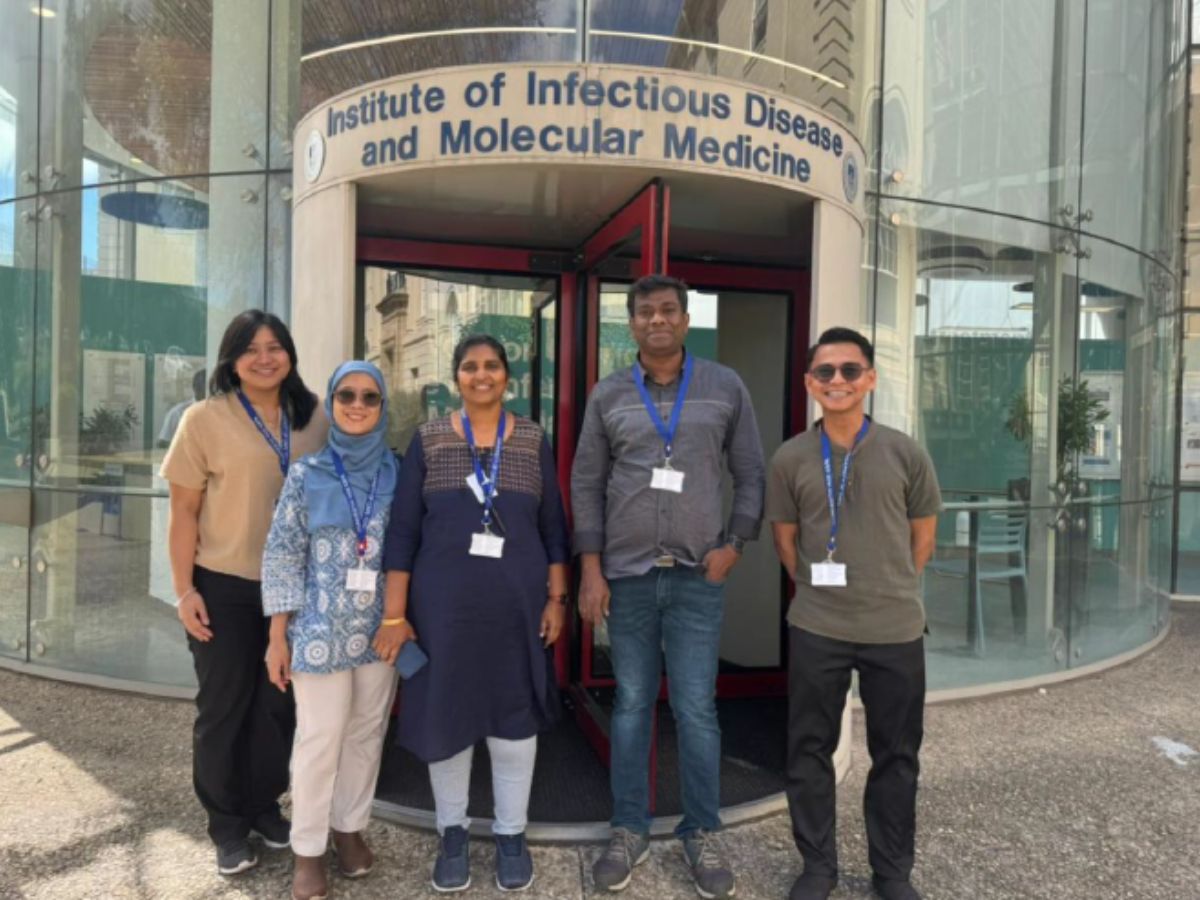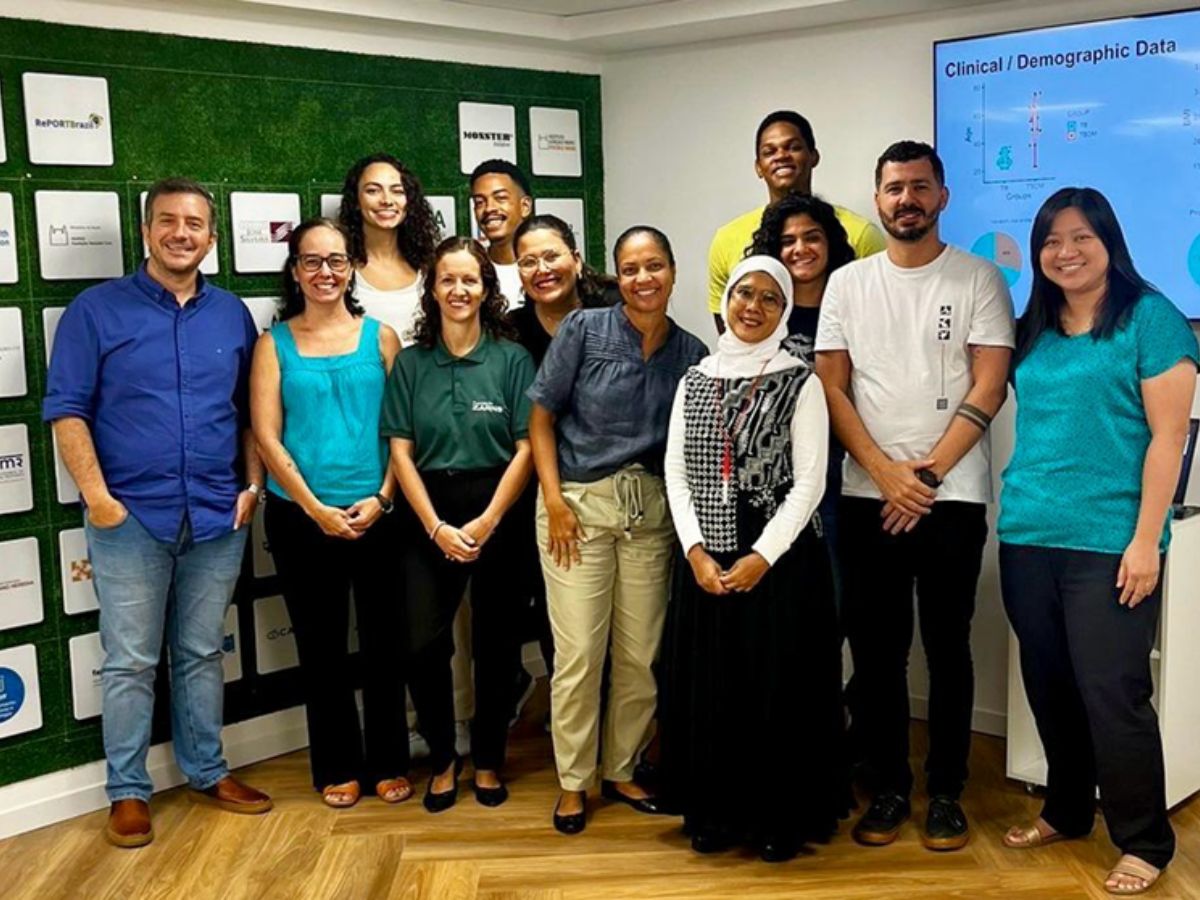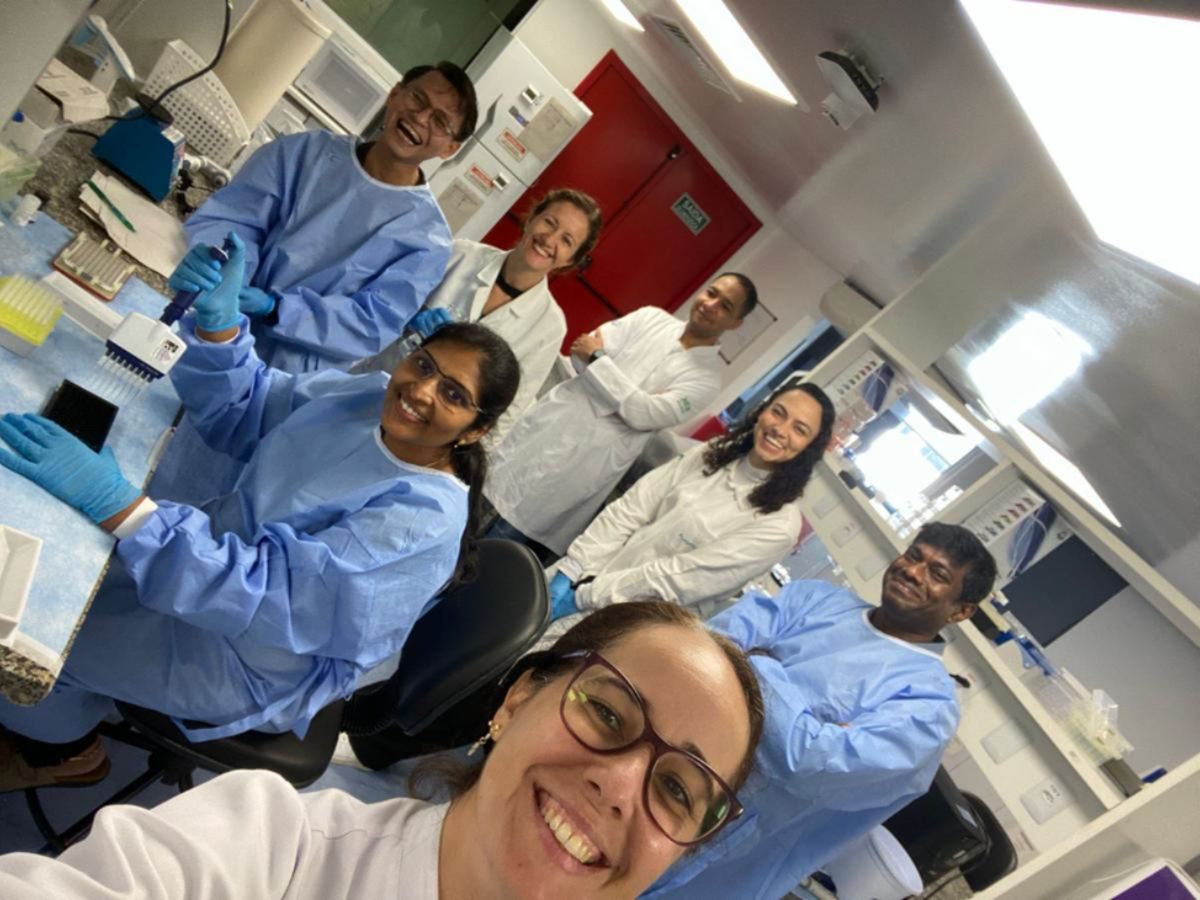Hands-On Training
Hands-On Training Inspires Young RePORT Investigators to Become Future Leaders.
A conversation with TB RICC Junior Lab Trainees
These trainees are our ambassadors, our advocates, and our futures
The ability for hands-on lab training in the TB field is rare – but to get training and experience with the world’s experts – this a true rarity. However, for four junior RePORT investigators, such a training opportunity came into being only because of the structure of the global RePORT Consortium, its cutting-edge work, and the enthusiasm of more experienced investigators to provide mentorship.
The five trainees were Amsaveni Sivaprakasam (India), Gustiani Salim (Indonesia), JohnCarlo Malabad (Philippines), Prakash Babu (India) and Ruby Anne N. King (Philippines). They were able to visit RePORT networks sites and learn new lab techniques. We got a chance to talk with the trainees during their final visit, in Newark, USA, hosted by Drs. Padmini Salgame and Sheetal Verma.
We asked how the trainees heard about the training and what appealer to them about it. Dr. Salim mentioned hearing about the training through a RePORT colleague and being excited to get involved given the Indonesia site being involved in a future biomarkers study. The trainees all expressed learning new quality assurance techniques in the lab, both around specimen collection and data clean up and analysis. Additionally, there was hands on training with new technology, and the use of data visualization. And finally, they appreciated how people in different labs use valuable space and facilities.
The varying environments provided a new perspective on how local work is done. “We really appreciated the one-on-on attention, and seeing the clinical sites, where recruitment takes place and handling very different equipment for us,” expressed Dr. Sivaprakasam. Dr. Malabad continued discussing specifics of what he would apply when he returned to the Philippines. “We need to learn to try using non-kit-based experiments. We can be bold and make modifications for higher and better quality. For example, we will make sure to use modifications of protocols, such as incubation times, that are reproducible.” Getting very specific, Dr. King stated she will be using Luminex technology more when she returns home as well as Dr. Salim being more comfortable using mRNA as opposed to just DNA.
The trainee very specifically felt one of the very valuable aspects of their training was learning R (programming language) from Dr. Evan Johnson, and how to do data visualization. “I have read the biomarker protocol but got a whole new perspective on the data with the training using R for analysis and visualizations that are publication ready” Dr. Malabad shared.
But it wasn’t all hard work and no play for these trainees! They complimented how hospitable their hosts were who also made sure they had fun. Highlights included visits to New York City, Table Mountain, and the beaches of Brazil. The trainees also mentioned that despite language barriers in some places, meeting local people in various settings was some of the most valuable time spent.
Junior investigators in RePORT are the future of the consortium. The trainees acknowledged that they will be looking for more ways to contribute including joining committees and working groups, as well as having the confidence to apply for cross-consortium funding opportunities. Dr. King felt, “This entire fellowship was a nice way to interact with different RePORT investigators…Since we are from diverse backgrounds, we worked together to understand different processes around the world…I feel like I can contact anyone from RePORT for assistance; they were so approachable.”
This first RICC lab training was new and bold for the type of rigorous schedule suggested. The RICC organizers constantly requested feedback from the trainees to make the experience rewarding as well as comfortable. Additionally, our conversation with them showed the importance of exposing young professionals to a variety of research types and techniques with inspiring, experienced professionals willing to guide and mold. Dr. Malabad summarized this sentiment well: “It was great connecting with experienced scientists and to see their passion – they pour love into their work. This training has been inspiring in many ways. When you are in your own country, you are closed to your own perspective. Being exposed to different practices, makes us realize we are capable of so much more.”
Dr. Babu remarked, “The Training session conducted by RICC through the Junior Investigator program was an amazing experience. It covered both technical and theoretical aspects of advanced Molecular techniques in Biosciences.” He added, “This training has equipped me with the knowledge and skills to attain new heights in my scientific career.”
By Daphne Martin and Rajita Bhavaraju
What's new
SA – Where Innovation Emanates
SA - Where Innovation Emanates!University of Cape Town Stellenbosch University Africa Health Research Institute University of Pretoria University of Witwatersrand Vanderbilt University Medical Center University of California San Francisco Colorado State University...
Collaborative Research Innovation
Fostering Collaborative Research and Innovation in TBThe 13th RePORT India Annual Meeting held from 3-5 April 2024, at the National Institute of Immunology (NII) in New Delhi.The 13th RePORT India Annual Meeting was held from 3-5 April 2024, at the National Institute...
Ending TB
Ending TBEnding TB: The Critical Role of Determinants






